A new study from the University of Copenhagen, published last week in The American Journal of Psychiatry, has found a link between hormonal contraception and risk of suicide.
Last year, the same group of researchers, lead by Professor Øjvind Lidegaard, found that hormonal contraception – such as the pill, the Mirena coil, the implant and the nuva ring – was linked to depression in a study which tracked one million Danish women between the ages of 15 and 34 over a period of 13 years. They found that women taking hormonal contraceptives were 70% more likely to experience depression than those not taking hormonal contraceptives.
This time around, they looked at the same sample size once again over a fifteen-year period and found that women taking hormonal contraceptives have up to triple the risk of suicide compare to women who have never taken hormonal contraception of any kind. The key difference between this study and the previous research is that it compares hormonal contraception users to women who have never taken contraceptives, while the previous study compared women who were taking hormonal contraception to those who were not, meaning some of them may have taken them in the past and stopped.
Earlier this year, The Debrief’s Mad About The Pill investigation revealed that women had been using the MHRA’s Yellow Card system to report experiencing suicidal thoughts which they believed to be caused by their hormonal contraception. Of course, depression itself is associated with suicide and suicidal thoughts.
The latest research from the University of Copenhagen has found that there were 6,999 first suicide attempts and 71 suicides among nearly half a million women with a mean age of 21 years-old. While it’s important to stress that the relative risk is low (the relative risk among current and recent users was 1.97 for suicide attempt and 3.08 for suicide), the data these researchers have collected suggests that there is certainly cause for further investigation.
The study also found that the risk of suicide peaked two months after starting hormonal contraception, plateauing after a year. However, even then, the risk of suicide attempt remained higher in women who were taking hormonal contraception than for those who had never used them: double after one year and 30% higher after seven years of use.
Debrief Mad About The Pill Stats
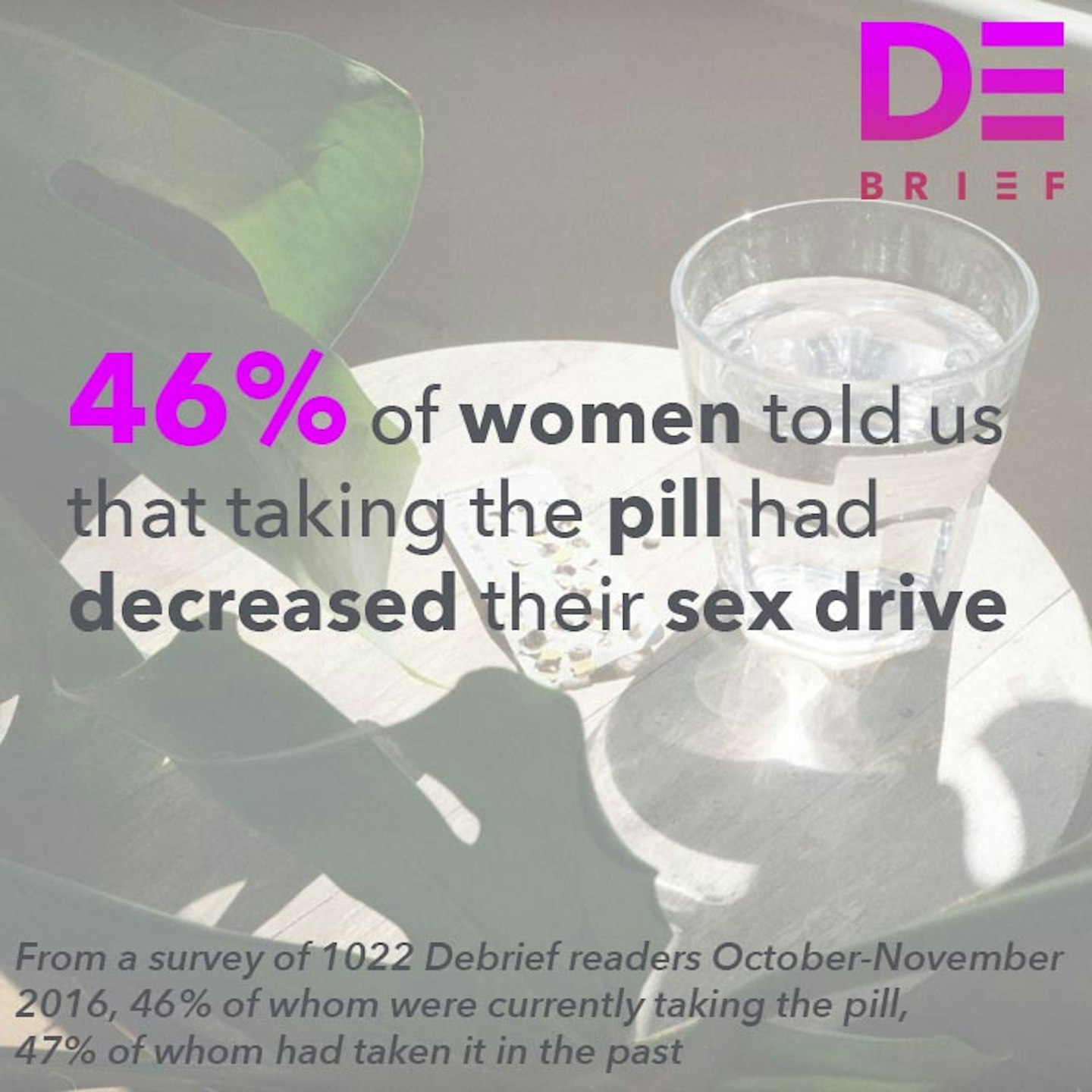 1 of 9
1 of 9Debrief Mad About The Pill Stats
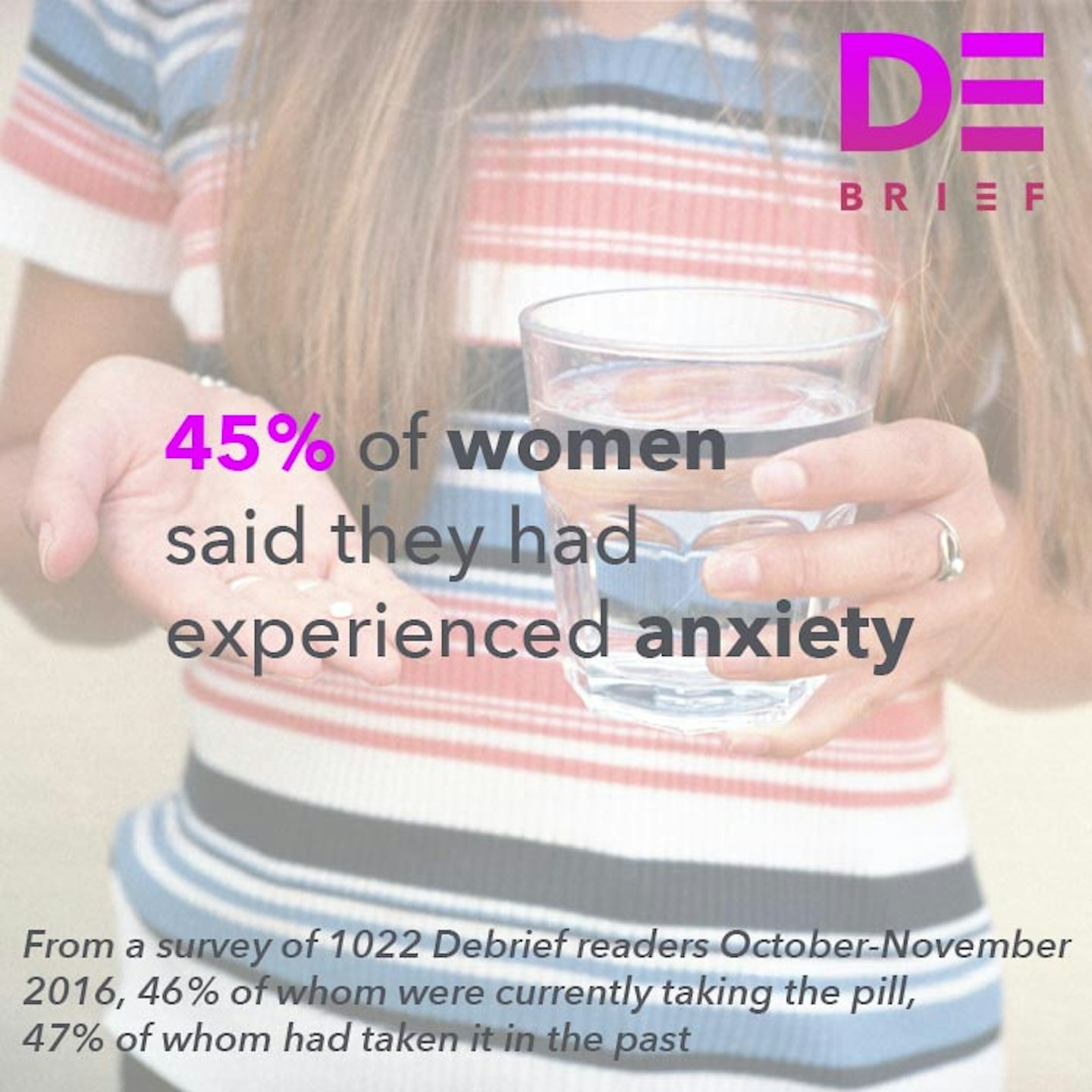 2 of 9
2 of 9Debrief Mad About The Pill Stats
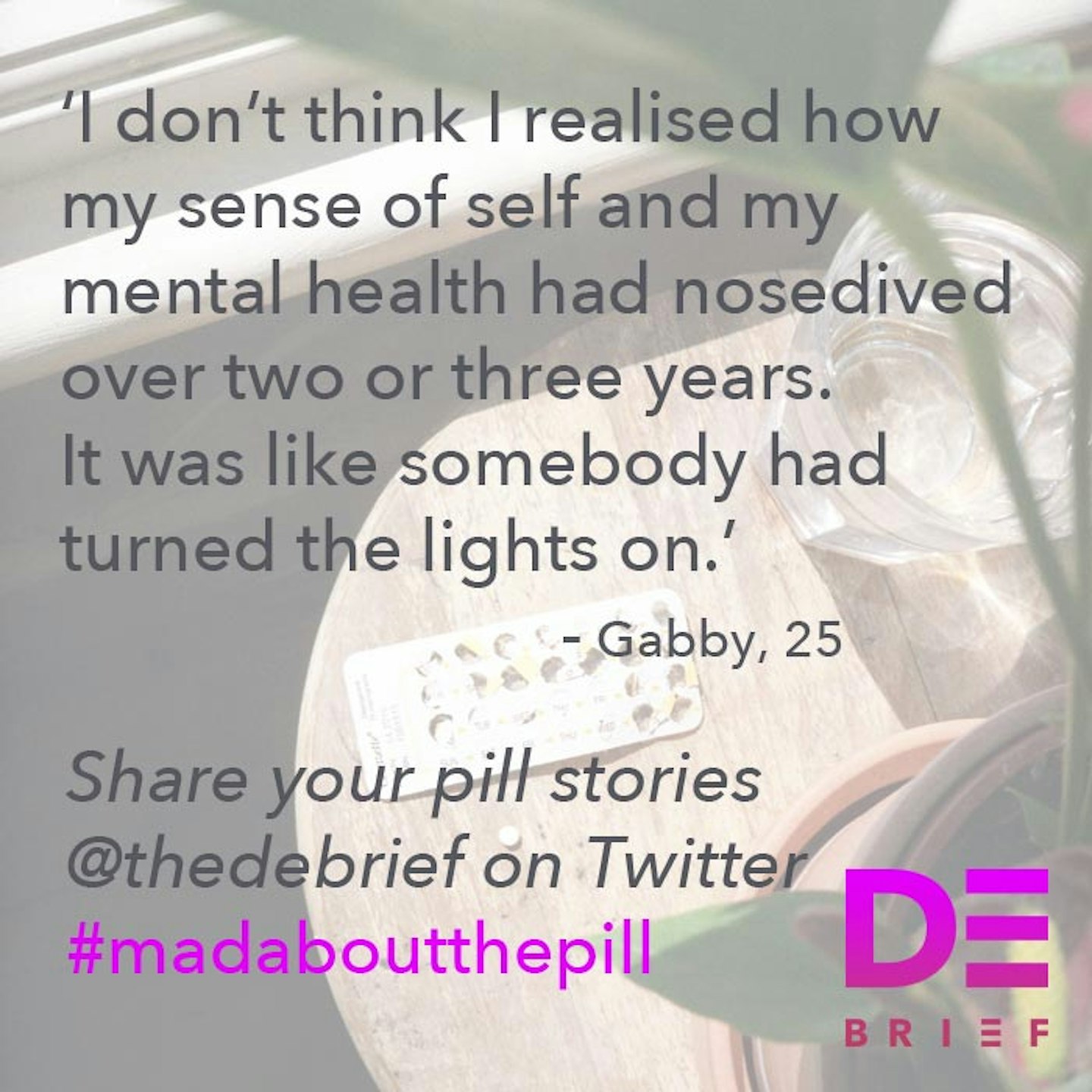 3 of 9
3 of 9Debrief Mad About The Pill Stats
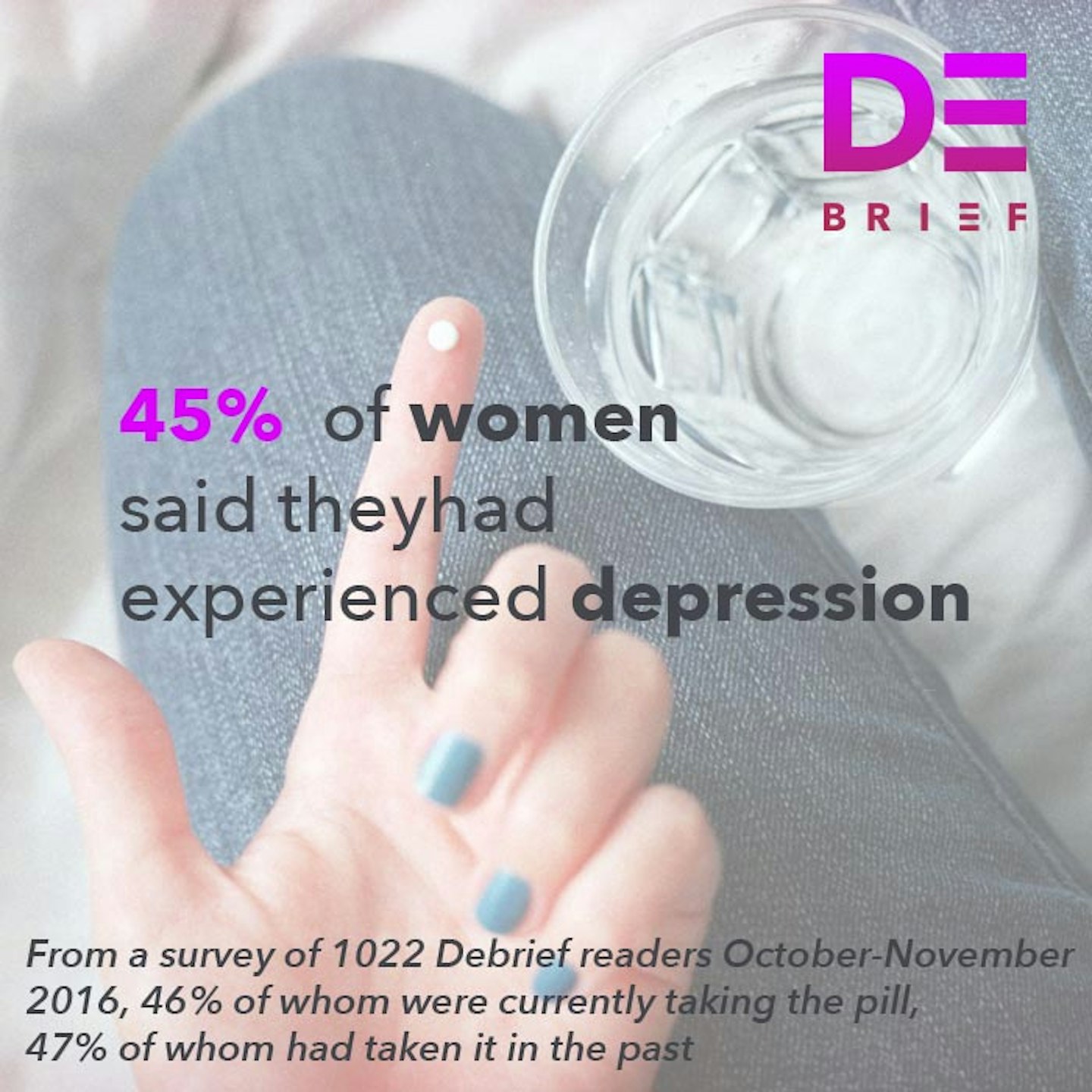 4 of 9
4 of 9Debrief Mad About The Pill Stats
 5 of 9
5 of 9Debrief Mad About The Pill Stats
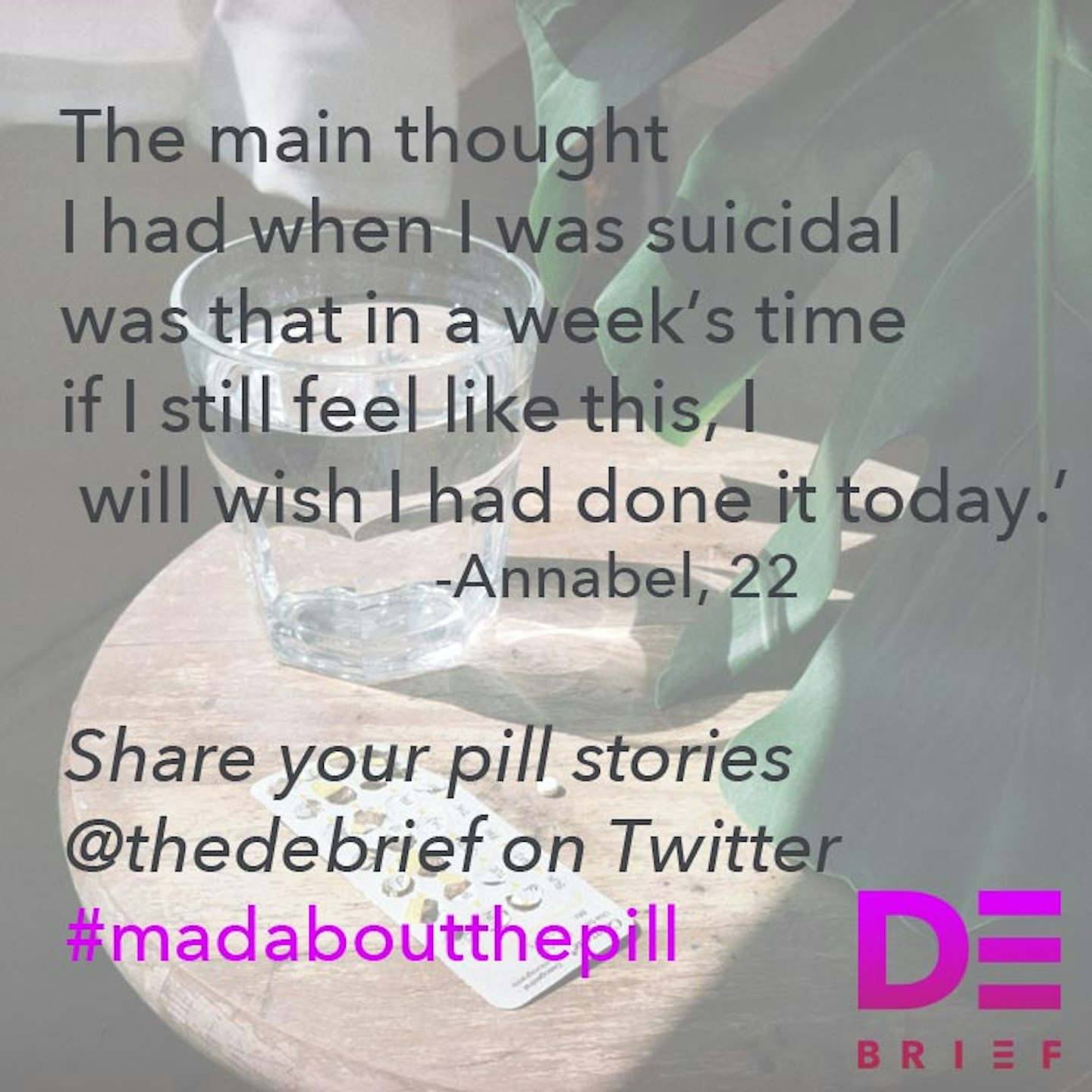 6 of 9
6 of 9Debrief Mad About The Pill Stats
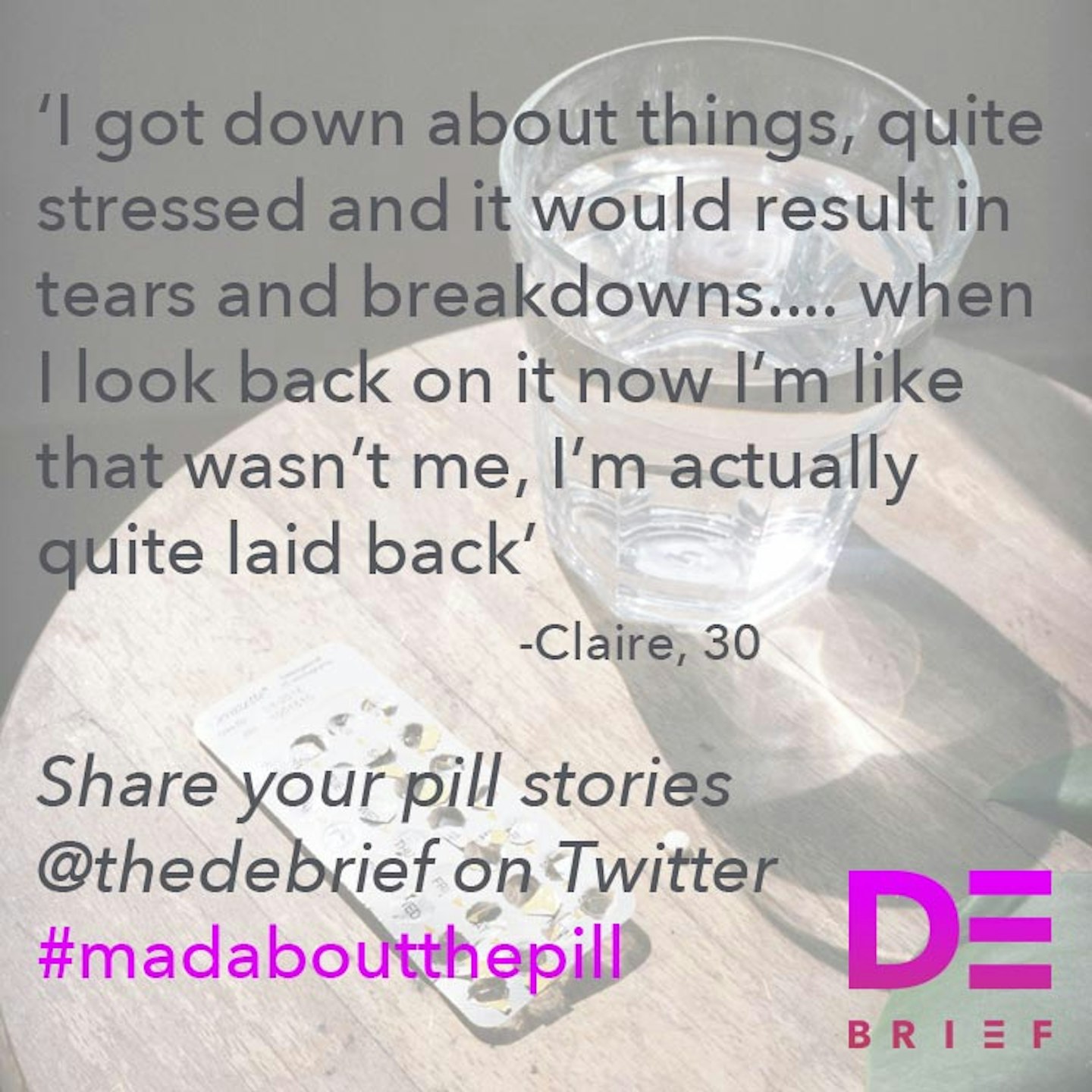 7 of 9
7 of 9Debrief Mad About The Pill Stats
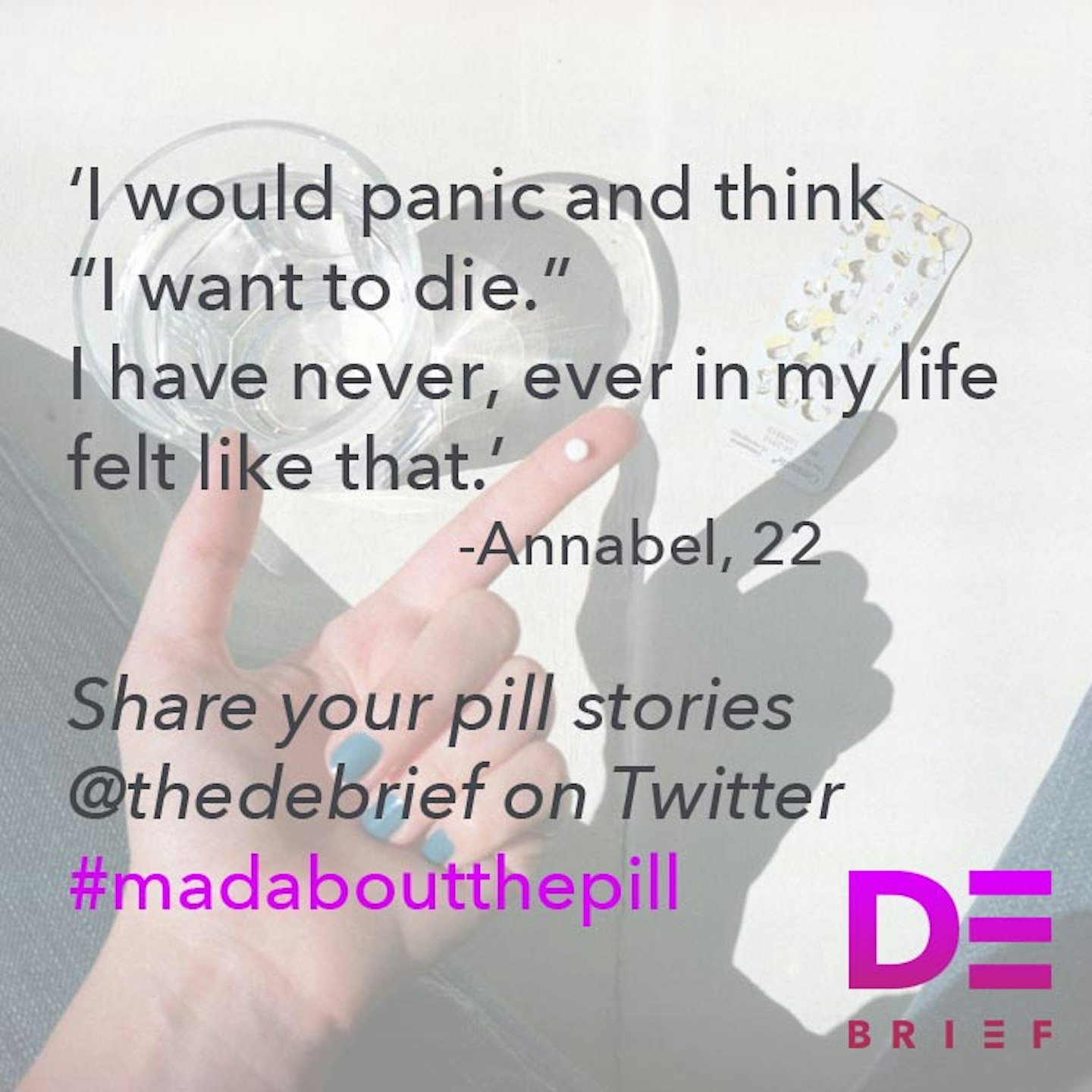 8 of 9
8 of 9Debrief Mad About The Pill Stats
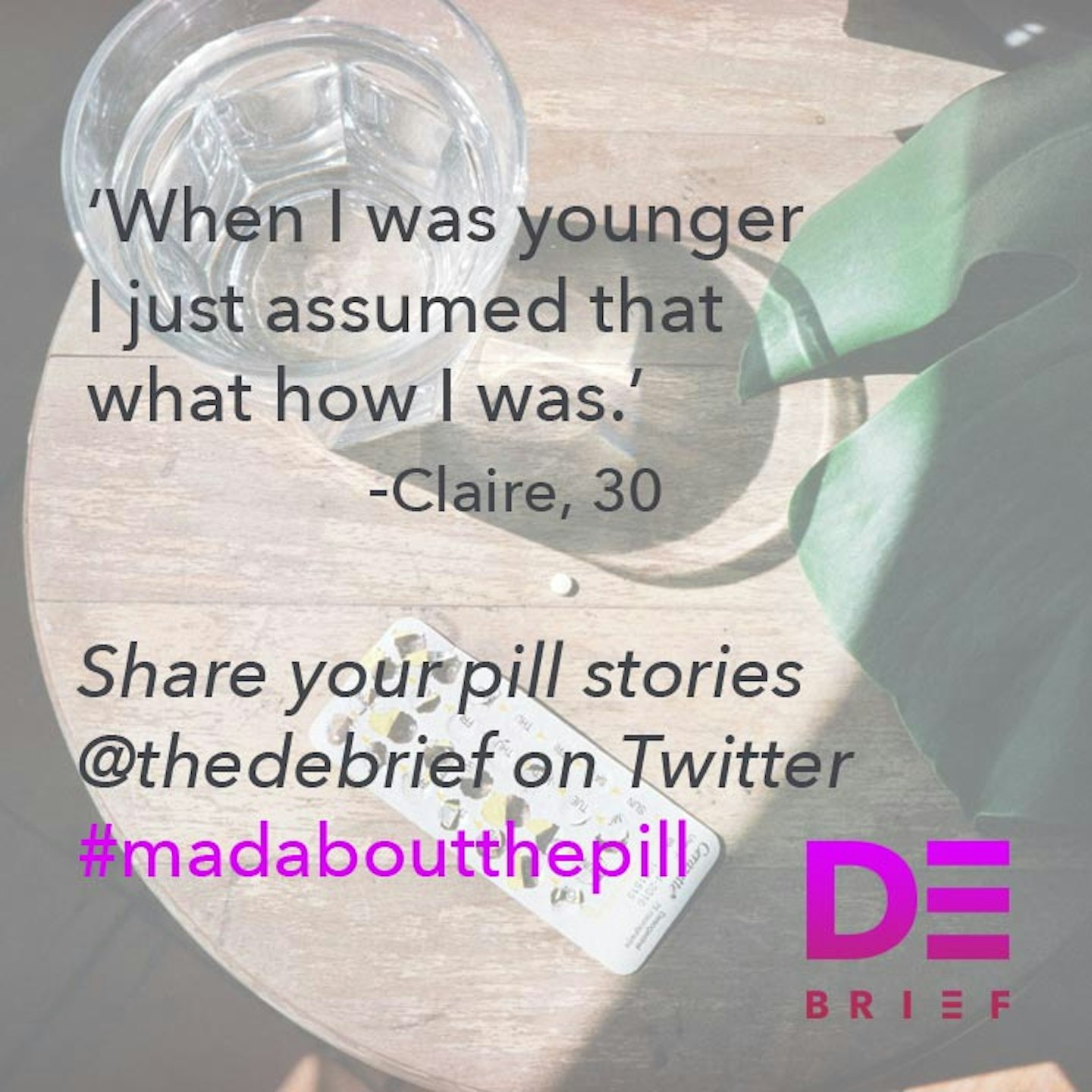 9 of 9
9 of 9Debrief Mad About The Pill Stats
Professor Charlotte Wessel Skovlund, lead author of the most recent research paper, has said that she believes ‘hormonal contraception can have a direct effect on the brain’. Indeed, as her colleague Professor Lidegaard toldThe DebriefThe Debrief in response to Mad About The Pill‘we have for a long time known that oestrogen generally improves women’s moods while, on the other hand, progesterone depresses women’s moods’ he added. ‘And that is why some women (even if they aren’t taking hormonal contraception) experience mood changes in their mood during the menstrual cycle when their progesterone is highest. All types of hormonal contraception are progesterone dominated – so they include much more hormones which have the same effects as progesterone and oestrogen – therefore it’s not surprising at all that these hormonal contraceptives can cause depression. It’s completely in keeping with our basic understanding of how sex hormones influence the mood.’
Professor Lidegaard hopes his research will provoke more discussion and investigation. He told *The Debrief *that, as he sees it, three things need to happen: ‘the first step is that the scientific community should accept and recognise that there is a causal relationship between depression and hormonal contraception. When the scientific community has accepted this correlation then the next step is to inform doctors that there is this link so that they can inform the women who get these products that one of the possible adverse effects of these products is that they could get depression. And then women should, thirdly, with this information reconsider whether the best contraception method for them is hormonal contraception or whether they should find others which influence their mood and mental health less. This is relevant, especially, for women with a previous history of depression.’
‘We have for a long time known that oestrogen generally improves women’s moods while, on the other hand, progesterone depresses women’s moods’ he added. ‘And that is why some women (even if they aren’t taking hormonal contraception) experience mood changes in their mood during the menstrual cycle when their progesterone is highest. All types of hormonal contraception are progesterone dominated – so they include much more hormones which have the same effects as progesterone and oestrogen – therefore it’s not surprising at all that these hormonal contraceptives can cause depression. It’s completely in keeping with our basic understanding of how sex hormones influence the mood.’
Depression, anxiety and suicidal thoughts are certainly not experiences by every woman who takes hormonal contraception, but it is the reality for some. The evidence to back up their anecdotal reports and validate calls for further investigation to find out why this is happening and more robust discussion of potential side effects is certainly mounting.
If you are concerned about your pill, or hormonal contraception, please contact your GP immediately
You might also be interested in:
Is Your Pill Causing Depression, Anxiety And Suicidal Thoughts? Debrief Exclusive Investigation
New Study Says The Pill Is Negatively Affecting Women's Wellbeing
**Follow Vicky on Twitter **@Victoria_Spratt@Victoria_Spratt
This article originally appeared on The Debrief.
